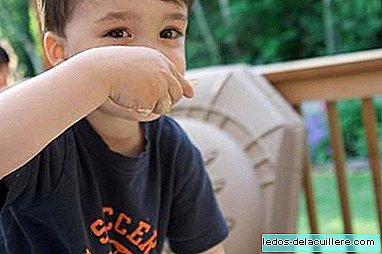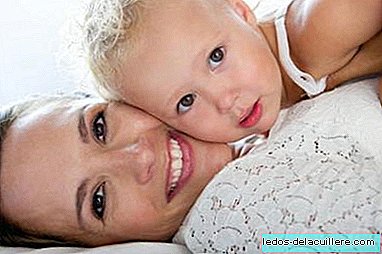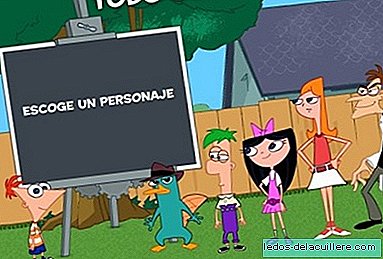
The Alsalma 2.0 study, conducted within the educational program 'Feeding the Health of Tomorrow' by Danone Nutricia, has revealed that almost 96 percent of children take more protein than recommended. It is clear that something is failing in infant feeding, but What can we change.
The work was carried out by 200 pediatricians, who have been based on data from 2,000 Spanish children between 0 and 3 years old. This excess protein in children's nutrition could be directly related to childhood overweight, so to prevent possible obesity problems you have to reduce the amount of protein in the children's diet.
Not only causes obesity
The specialists noted that the 1 percent increase in the proportion of proteins in the child's caloric profile has led to a increase of 0.029 kilos per square meter of the Body Mass Index (BMI)
Proteins left over in the body they become fat, which is stored in the form of cells, called adipocytes. The number of adipocytes is formed in childhood and after that stage they vary little in number, but may increase in size.
The more adipocytes formed at an early age, the greater the risk of being overweight, therefore they are fundamental years to lay the foundations of a healthy diet and prevent obesity.
But excess protein not only contributes to being overweight, it can also cause other health problems. Provokes unwanted metabolic consequences as the liver and kidneys of babies and children are overloaded with work, in addition to putting bone health at risk by promoting bone decalcification.
What to change in the diet?
According to the authors of the study, in the period of breastfeeding the nutritional contributions of children are covered but things begin to "deviate" when they begin to incorporate new foods.
The lack of time, taking care of ourselves more in fats than in the proteins we give to children, can lead us to make the mistake of hyperalmenting children, or feeding them badly. Too many meats in purees, proteins of animal origin in all meals ...
To give to our children the right amount of protein, we must take into account the following tips:
The recommended protein intake is 10 to 15% of the total diet. According to the WHO, babies between 6 and 12 months should consume 1.6 g / kg / day of protein. As they get older they need less protein because they no longer have to grow so much. From 1 to 2 years, they should consume 1.2 g / Kg / day of protein and this amount should decrease 0.05 grams for each year they turn up to 6 years. That is, 2 to 3 years should consume 1.15 g / kg / day of protein and so on.
The proteins consumed should be 65% of animal origin and 35% of plant origin, we usually give more than the first. Therefore, it compensates with more than the second as lentils and legumes, cereals (especially those with high protein content such as quinoa) and green leafy vegetables.
Avoid including proteins of animal origin in the two main meals of the child. Offer meat, fish or egg only once a day.
By last, controls the amount of protein the child consumes. It is preferable to offer less meat and more of the first course or dessert if you are hungry.
Than children take more protein than recommended It is worrying. The study also detected other nutritional problems such as excess vitamin A in children under one year of age and vitamin D deficiency in older children. Improving nutrition in the first years of life is essential to prevent future health problems.












